What Korean dramas could learn from Japanese productions
by javabeans
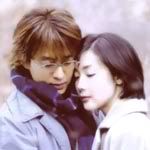 There’s an article in the Korea Times (in English) that points out some issues in Korean drama production and what could be improved by looking at the Japanese drama production model. I won’t reprint the whole article here, but the gist is:
There’s an article in the Korea Times (in English) that points out some issues in Korean drama production and what could be improved by looking at the Japanese drama production model. I won’t reprint the whole article here, but the gist is:
Korean dramas have higher actor fees, which leads to inflated budgets and smaller profit margins (or losses); twice-weekly broadcasts keep ratings and buzz high but adds to frantic pace of production. On the other hand, Japanese dramas hand out lower salaries; once-weekly episodes have shorter running times, which gives production more time to ensure higher quality.
I think most of us here are savvy about drama production, particularly since the problems are highlighted whenever a high-profile series becomes known for its behind-the-scenes scrambling (ahem, Boys Before Flowers, East of Eden). Already we’ve had similar discussions in many threads here, but still, it’s an interesting read.
Tags: drama production, j-doramas
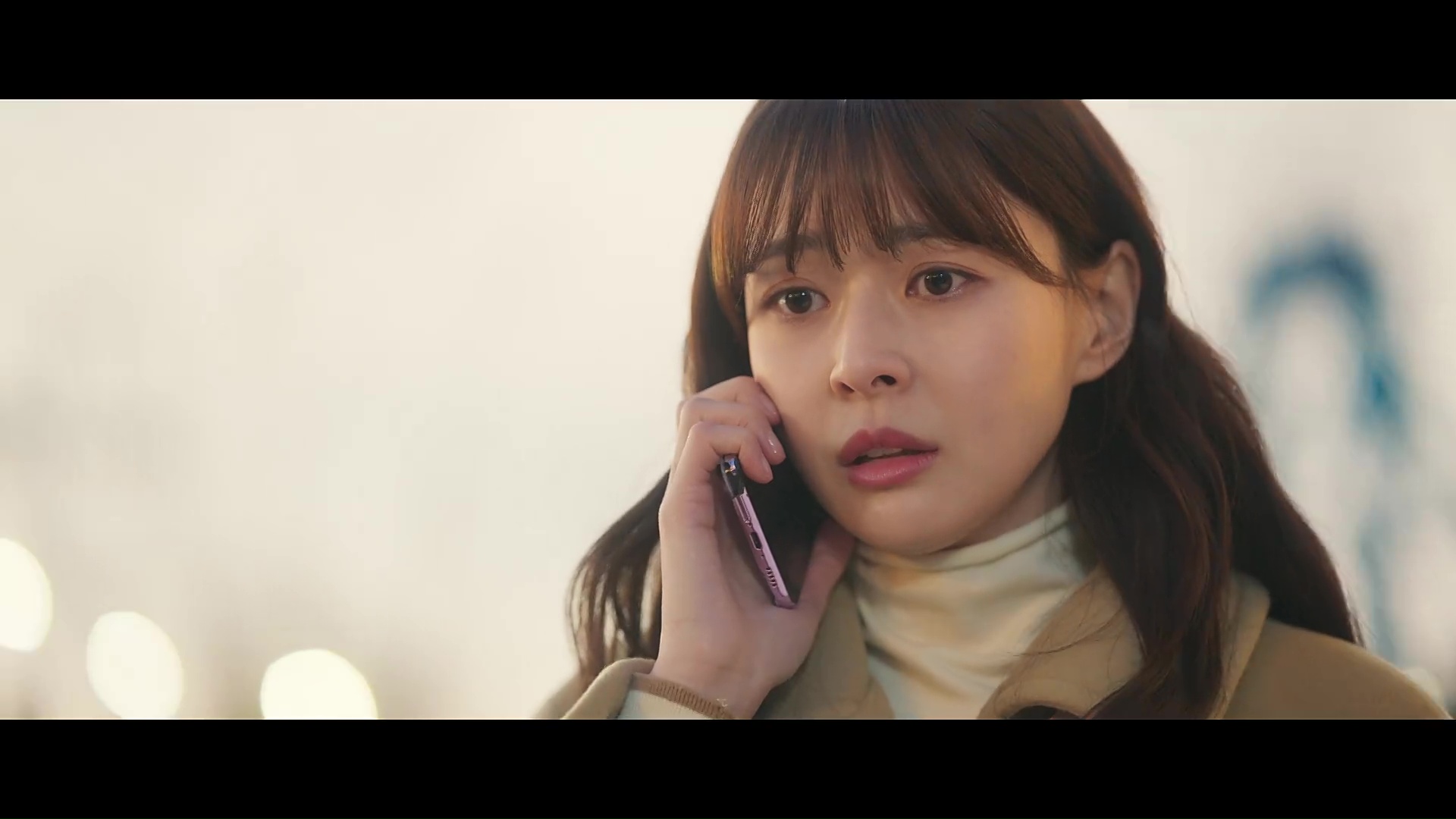
![[K-drama Treasure Hunt] Heart-fluttery bottle opening](https://d263ao8qih4miy.cloudfront.net/wp-content/uploads/2023/05/Kdrama-treasure-hunt.png)
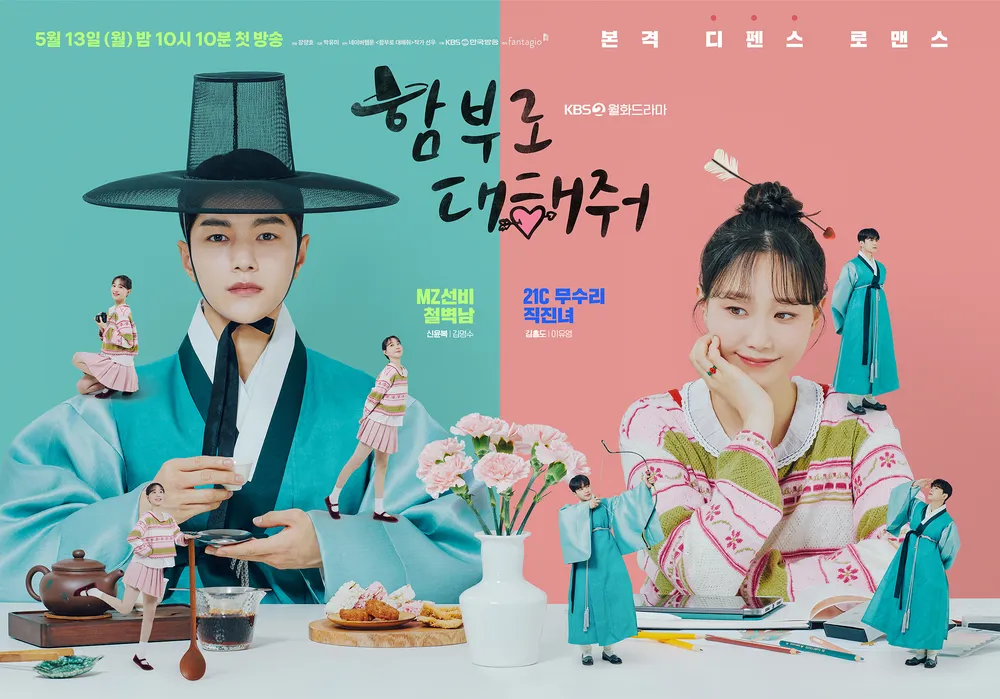

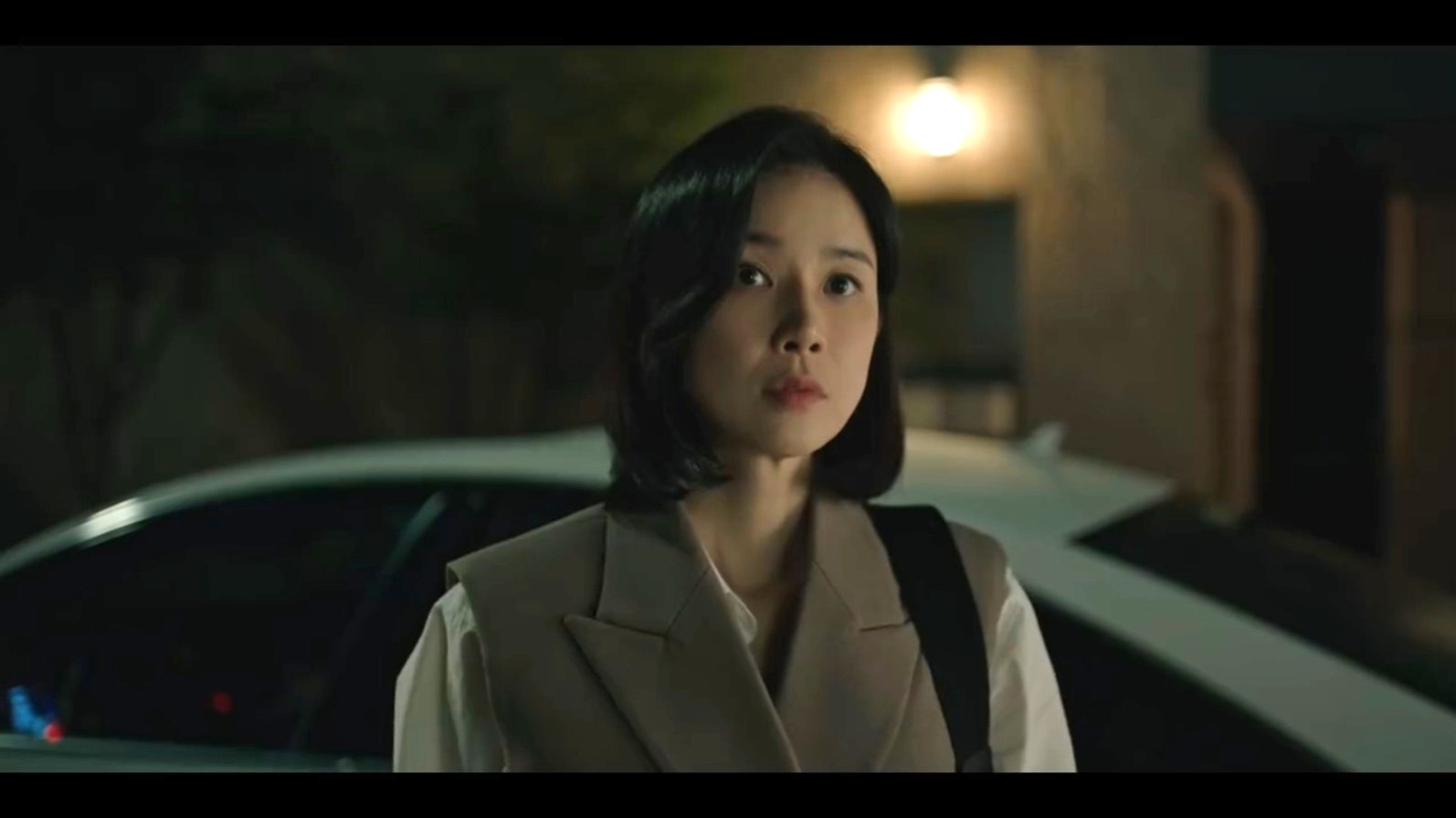
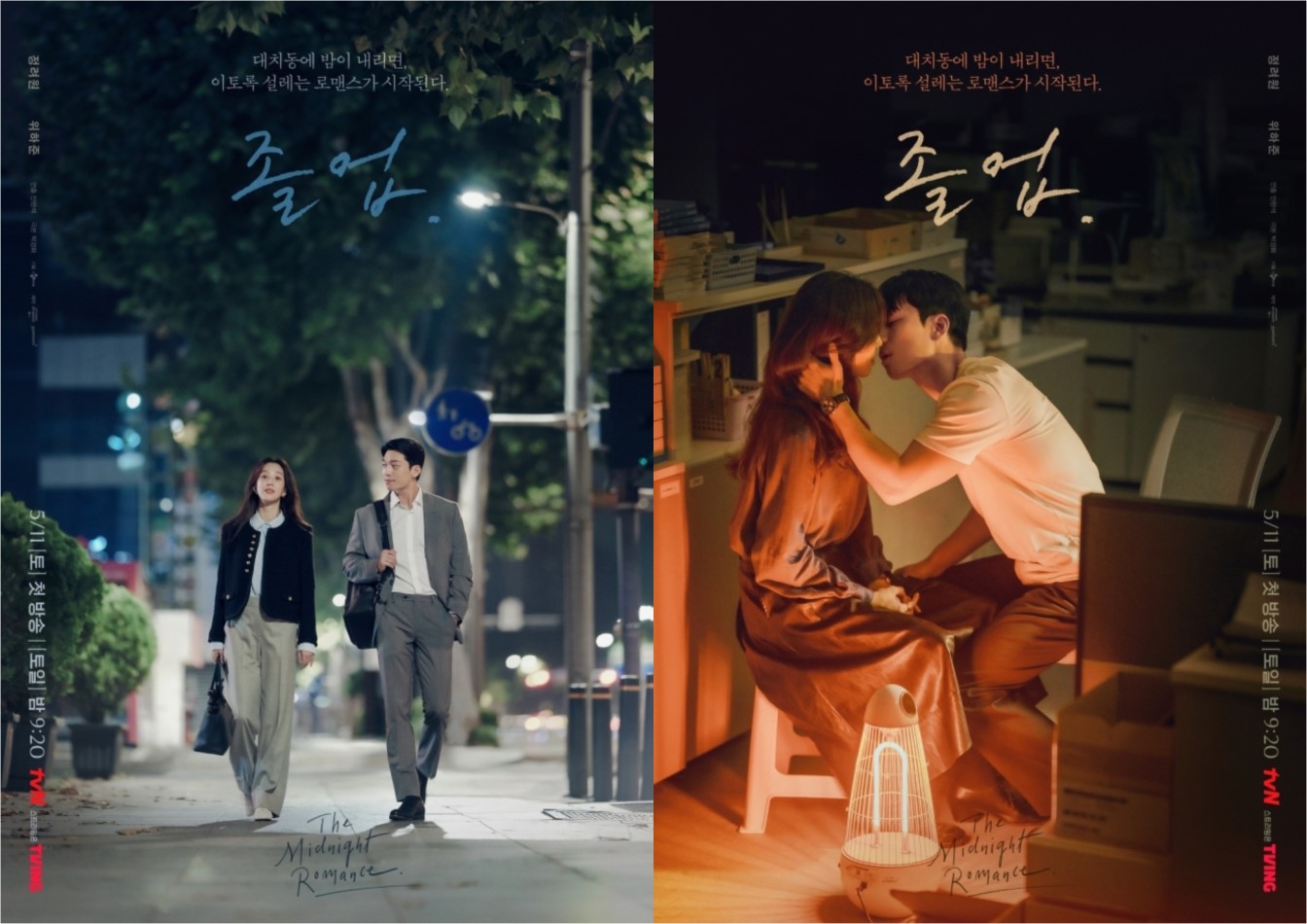
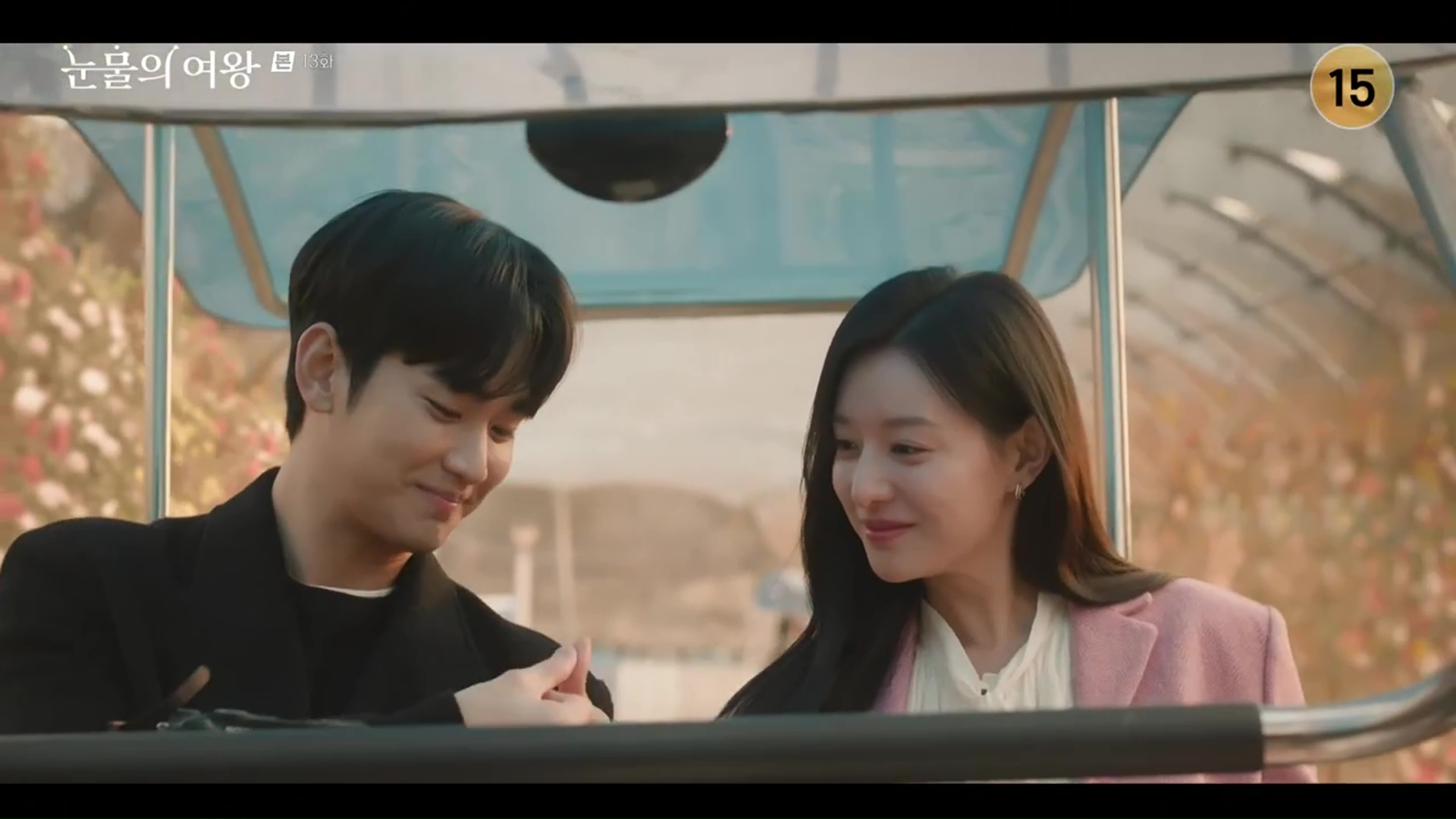
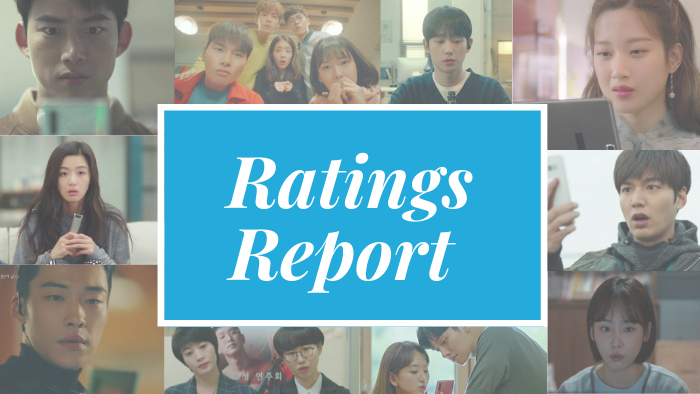
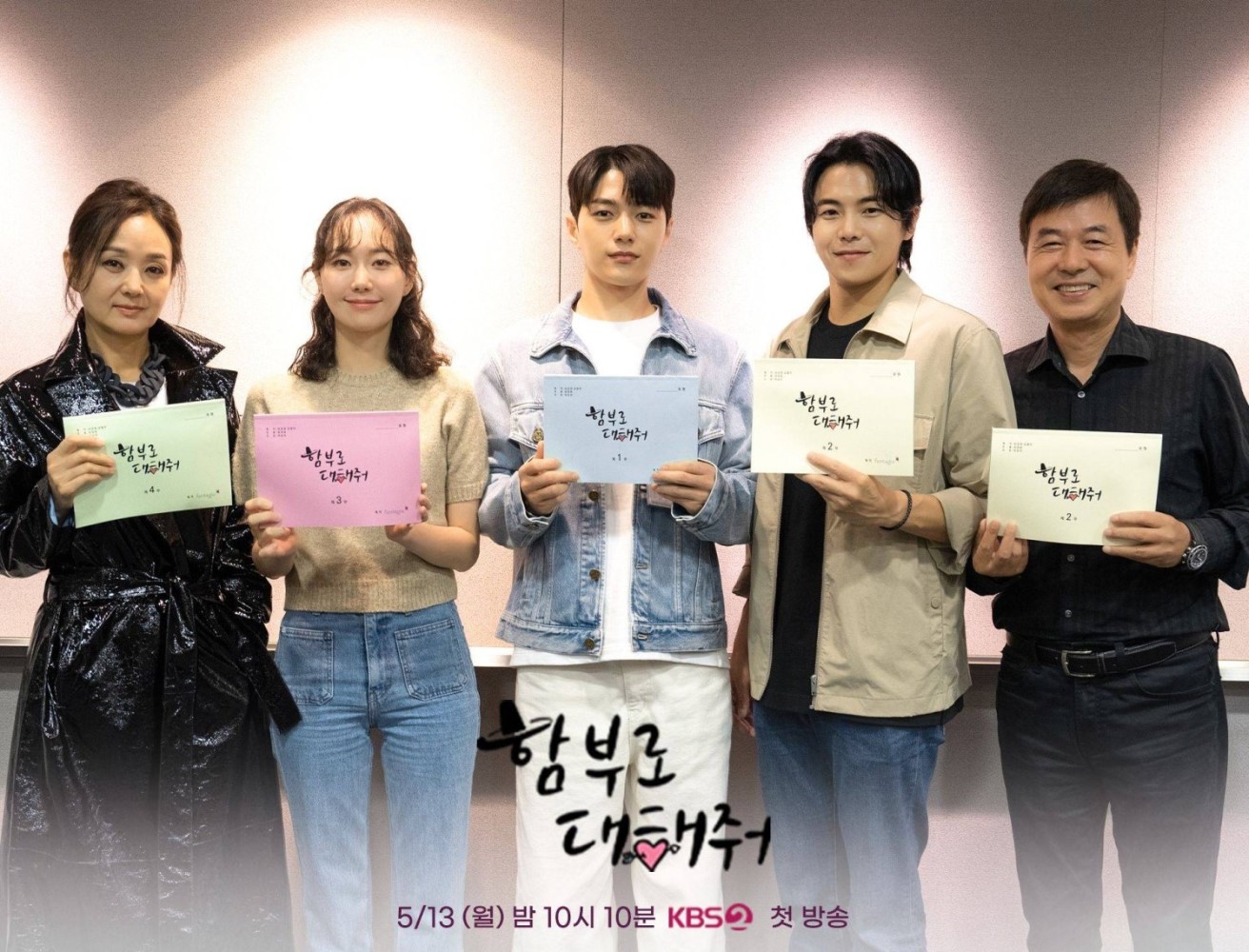
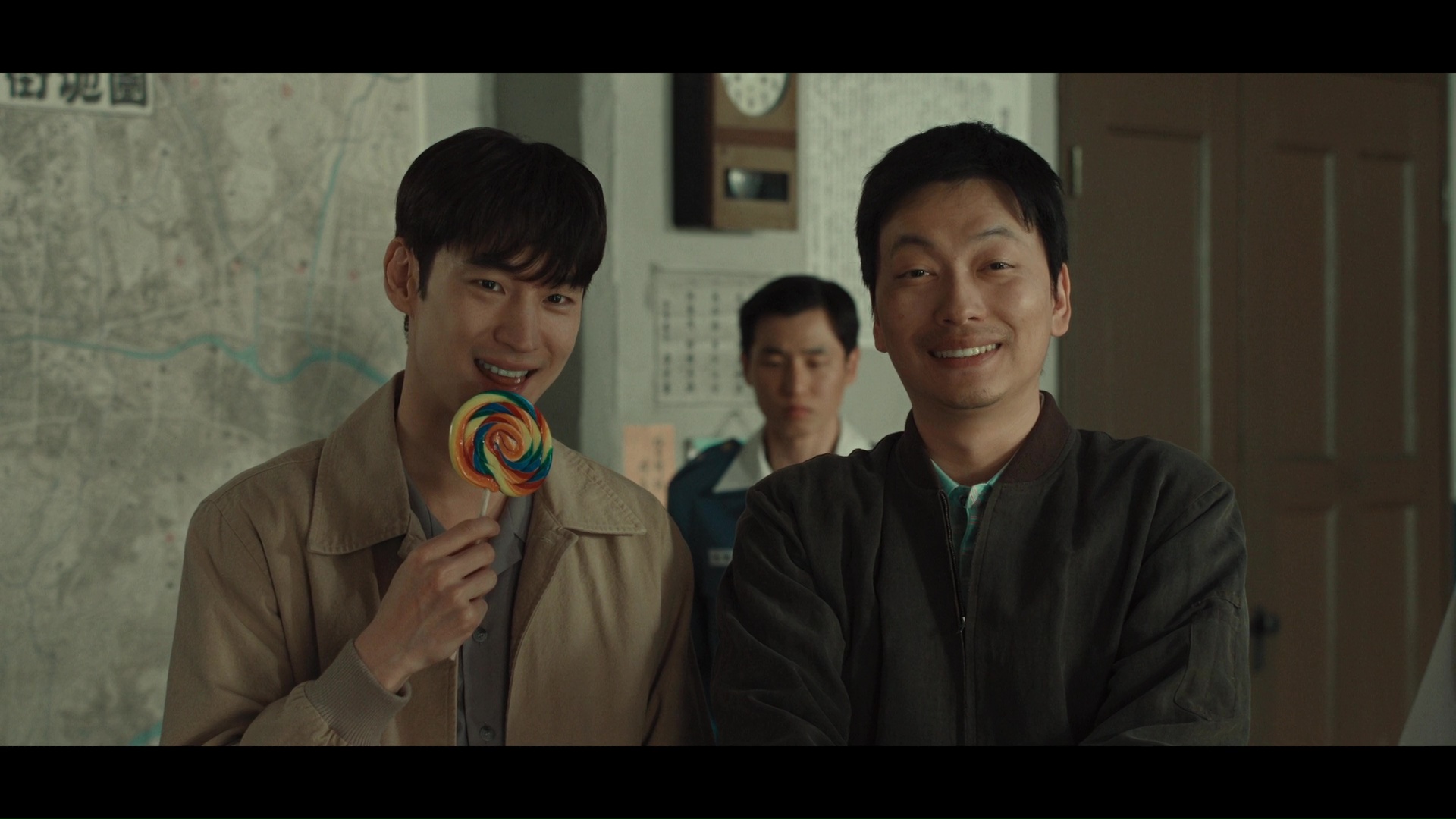
Required fields are marked *
Your email address will not be published. Required fields are marked *
1 Jane-Jandi
April 20, 2009 at 12:54 PM
i agree yet disagree
korean dramas can get higher quality if they hav more time and stuff
but the faster the time leaves me satisfied
oh yay i was first!
Required fields are marked *
2
April 20, 2009 at 1:12 PM
Better for the production team but worse for us!!!
Since we have 2 wait for 1 ep a week!~! And believe me it is SOOO annoying!!!!!
The korean productions is all about keeping the viewers happy and b/c we like
two eps a week they r goin 2 keep that!!!!
Why not just start filming earlier instead of one ep per week
Required fields are marked *
3 ar_arguably romantic
April 20, 2009 at 1:28 PM
i also agree and disagree. I agree that there should be a limit on actor salaries to cut down production costs. But before that can even happen, Korean productions should do something about the last-minute-all-nighter scrambles. If Kdramas would only film earlier, then actors/actresses wouldn't be so stressed (many of them look thinner by the end of the series) and wouldn't feel so entitled to the large pay. And the writers should have the entire script written out beforehand too- so that different scenes from various episodes can be filmed in a bundle at one location.
As for the twice a week thing: There are kdramas out there who manage to put out decent quality work even with the long twice-a-week episodes they have to prepare. Jdramas are shorter so the entire series run would usually be about 3 months. If a kdrama released episodes once-a-week, the series run would be too long. Imagine East of Eden lasting an entire year!
Required fields are marked *
4 mishane
April 20, 2009 at 1:29 PM
I've always been curious about the differences between the two.
I was surprised to hear that k-dramas are written as they were filmed. I always thought the whole thing was written prior and then just filmed. Like they said, I guess that explains why we have "filler" episodes and why some episodes feel so rushed.
Like I've always said, I can always predict the k-drama schedule, especially for a 16 episode drama. They all follow the same steps.
dramabeans, do you watch j-dramas? I watch them sometimes, but they are such a different feel and style from k-dramas that I can only watch a few and then take a break before I watch again.
I also heard that the Japanese entertainment industry pay their actors a much smaller amount of money and they keep a tight control on what gets released to the media.
Required fields are marked *
Karen Yip
April 11, 2016 at 10:12 PM
Bare in mind, Korean drama must extend it's episodes, due to its quality.
If you compare to the Japanese drama, they have a better quality. So most people, don't really care if it the episodes are shorter than Korean drama.
Required fields are marked *
5 Javabeans
April 20, 2009 at 1:36 PM
"I was surprised to hear that k-dramas are written as they were filmed."
Many are, but some aren't -- take 2007's Mixed-up Investigative Agency, which was written entirely before airing, which explains why it's so tightly plotted and intricate with the mystery. However, that drama also averaged something like a 4% rating (OUCH!) so there's always a downside with putting all that effort into something that doesn't translate to the audience -- NOT that I think pandering to audience whims is a good idea. And Return of Iljimae was written as it was airing, but had a lot more time -- Jung Il-woo interviewed that he studied one particular episode's script for two months before shooting it.
I've watched a couple jdramas and really enjoyed them, but they are a wholly different experience for me (kdramas feel "home" to me and therefore are more likely to grab me emotionally, whereas jdramas, no matter how well done, feel more like a foreign entity).
Required fields are marked *
6 Gallivanter
April 20, 2009 at 1:38 PM
I can understand why a series is written as it goes along, BUT, I keep wondering when Korea is going to get to the point where it is no longer feasible. There's been a few instances of American television where an episode has been written right before it airs (the West Wing special right after 9/11 comes to mind), but because it's done so hastily...it usually doesn't turn out well.
Required fields are marked *
7 lovenyc52
April 20, 2009 at 1:52 PM
I admit that I know zero about actually producing a series. I can only comment on what I like and don't like and how I believe it could have been done better... and these comments may or may not even be realistic in production views - I have no idea.
However, I have to say that lately I have been enjoying Japanese dramas more - maybe because I feel that in those short 10-12 episodes (which time-wise break down to maybe 9 kdrama or tw drama eps since Japanese ones are only 45 min generally) they just cover so much more. Time isn't wasted - the story is told in a quick and concise manner. Of course sometimes this ends up with a rushed ending, but after watching many jdoramas, kdramas, and tw dramas, I almost prefer a slightly rushed ending to an overly drawn out ending.
Whereas kdramas and tw dramas are being aired and produced at the same time and based off ratings they can decide to extend the ending, I think jdramas are produced before being aired (correct me if I'm wrong because I'm not positive about this). If the ratings are high enough, jdramas then produce an SP (special) and air it a few months to a year later to give the viewer a little more and wrap up the story.
I'm not saying I don't still enjoy kdramas and tw dramas, because I definately do... as flawed as BOF was, I still enjoyed the craziness it was (though I must say towards the end I think I enjoyed javabeans recaps more hehe).. I think it's just that my patience for the drawn out storyline has worn thin...
If you do click on the article, the first photo still that shows up is the jdrama Nodame Cantabile, which is by far my favorite drama of all time. In my opinion, it's exactly what I look for when I watch a drama - fun and humor, a couple of misunderstandings and roadblocks thrown in for kicks, just the right amount of angst to make you relate to it... and most importantly, doesn't take itself TOO seriously. Of course everyone looks for different things in dramas (it would be absurd to think everyone likes what I like ha...), but for the most part I want to be able to sit back and enjoy a show without having to struggle too much with drawn out cliches and unnecessary drama.
omg i just realized that I wrote an essay haha. oh well - that was a nice little break from work. But really - get your hands on Nodame Cantabile - it is such a fun series and the music is superb!!
Required fields are marked *
8 Biscuit
April 20, 2009 at 1:55 PM
I agree that both K-dramas and J-Dramas give a different feel. Very. Different. (I've always noticed when it comes to "rich" people in J-dramas, why do they always have french maids and large mansions :O I think Jun Pyo in BOF was the closest rich person in K-dramas that actually has a mansion with french maids and a personal secretary *other "rich" people are just the usual large house, with an ajumma who takes care of the house :/)
But if some dramas can spend more time on a single episode, perhaps it won't feel rushed and the plot line will be more smooth. And less eye bags on our actors'/actresses.
Required fields are marked *
9 Lucille
April 20, 2009 at 1:59 PM
I also agree and disagree with this article. I watch a lot of Jdrama and because they are so short, it is not suprising to see a star in 2 or sometimes three dramas a year, plus a few movies. I rarely see a Korean actor in a leading role in more than one drama a year. It does happen, but not that often. So, from that point of view the salary is the same. I disagree that Jdrama are better written than Kdramas. Jdramas don't have the time to explore the plot they way Kdramas do. I notice that Jdrama are more concerned about character development and dialog and less about the action. So, that's why they need specials because they leave so much of the story untold. There are very few Jdrama that have ended without me saying what was that? What about this person or that plot line?
I do wish that Kdramas were not so rushed. I loved EIA and I liked "I Love You". They seemed so calm, but BBF and EOE, you could feel the panic. I enjoy that they are twice a week. With Jdrams, I pull my hair out waiting for the next episode. They both have their ups and down and I love them both. Even Tdrama.
Required fields are marked *
10 Samsooki
April 20, 2009 at 2:05 PM
This is a fairly poorly written article.
First, there's not enough information in the Korea Times article to evaluate any conclusions made by the report entitled "Comparison on Drama Making of Japan and Korea," Kim Young-duk) presumably generated by the Korean Broadcasting Institute. The Korea Times article's title is "Korea Can Learn From Japanese Drama Production." This strongly implies (but never states, obviously, since that would require... something called "proof") that if Korean drama producers were to follow the Japanese model, then Korean dramas would be of a better quality (presumably, like Japanese dramas???).
But there is no data or analysis by the Korea Times article to make that conclusion at all! For all we know, if Korean drama producers followed the Japanese model, then profits for the Korean drama producers would be higher and Korean actors would have smaller bank accounts. But what difference would it make to the actual quality of Korean dramas themselves???
The Korea Times article quotes a single report of unknown quality and unknown agenda. How can I evaluate the statements made by the Korea Times article, when it doesn't even attempt to evaluate the robustness of the report pushed out by the Korean Broadcasting Institute? Who knows why the report was generated, who knows who paid for the report, why it was released now, and whether there are competing reports that challenge the conclusions? And why is the Korea Times plugging this particular report without doing any bit of research to ascertain whether the report's conclusions are reasonable, and whether people can reasonably extrapolate that Korean dramas themselves would become better if Korean actors had their salaries reduced? Didn't anyone at Korea Times take journalism classes?
***
THAT BEING SAID, I still have a few criticisms for Korean dramas and Korean pop music as a whole, as I see a few bargain-basement production techniques (in both the dramas and in music) that can leave much to be desired. You can tell this in Korean pop music especially, as the producers of these bubble gum songs re-use tired old bass and percussion tracks and so they all end up sounding alike. That's why when a new song comes out that even just a little bit different, it can sound so much better.
But creating better production values in dramas is really hard to do, and I am not sure if merely lowering actor salaries and slowing down production would necessarily help that much. How much monetary savings are we talking about? How much would varied set locations cost? How much for better and more complex filming equipment? Certainly, they would want a bigger editing and writing staff, but how big and how much does that cost. How much to get better and more varied music and instrumental? How much for additional extras and for background shooting?
If I had unlimited budget, I would like to see Korean dramas have more dynamic (moving) sets (which require a lot more equipment, more training in how to use them), and I'd like to see bigger sets / on location permits, I'd like to see different kinds of shots that require more than standard two-camera technique (one side, then film the other side). I'd like better sound tracks and sound editing, and introduction of skilled foreign actors and technicians to improve overall quality.
Whether these kinds of budgetary items would be available if production were to slow down and actors' salaries cut, and, whether the resulting mix would create a "better" drama from an audience point of view, I have no idea.
-Samsooki
Required fields are marked *
James Harris
April 11, 2016 at 10:30 PM
Yes, there are few criticisms for Korean dramas and Korean pop music. Especially, Korean pop music.
I believe Japan has the better music production than Korea. That is the fact. Japan pop culture music started long before Korea develop the pop culture music.
I happened to be in Seoul, Korea and Tokyo, Japan, music production studio. I have compared the music (rhythm). Japan has a unique style. Korean music, too flat and plain.
Required fields are marked *
11 belleza
April 20, 2009 at 2:07 PM
"Korean dramas have higher actor fees, which leads to inflated budgets and smaller profit margins (or losses);"
Oh please. Most J-dramas are taking losses as well (there's just no way people can spin <13 ratings as "profitable") , and most advertisers have moved away from dramas as a means to promote. TV viewing habits are changed so much in Japan, that on average the only people who watch TV in any great amounts are the teenagers now. Therefore, the extreme proliferation of idol dramas.
"Japanese dramas hand out lower salaries;"
It also helps that the average age of your lead actor is about 23-27 years old, works under an idol agency, and have almost no say over what dramas they can do. And those are the ones who get paid well. Most top actors make much more from doing commercials, and more are switching toward independent movies. Also the image (and therefore creative) control over Johnny boys is a magnitude stronger than what you see over at SM Entertainment.
It's also rather sad that a Kimura Takuya only makes $35K per episode. He is without question the biggest star in Japanese drama for the last 15 years. When he does a guest appearance on a show, the ratings will spike 10+ points just because he's in there for 15 minutes.
"once-weekly episodes have shorter running times, which gives production more time to ensure higher quality."
That would significantly improve K-drama programming (and it would effectively double the number of programs.) But, the larger question is whether the mainstream K-drama audience can accept true expansion of programming. Japan used to run primarily soaps/trendies in the late 80s, but then by the early-90s, the writers were enabled the freedom to expand what they were allowed to write about. Having said that, there was kind of a devil's deal made to facilitate this. Writers were given more freedom. However, it became moreso important that idols were cast, in order to mantain a certain level of ratings and commercial viability. Meaning, you often had great writing with not-so-great acting (though often a number of those actors matured into true leads.)
Another thing is, J-dramas sometimes have production issues as well. The difference is, when it happens to J-drama, there is no time to recover. Because the model is so heavily geared toward narrative and colloboration between the director and writer, if the writer falls behind or if there's problems in casting, the characters start to heavily warp with the plot. Also, because many of the younger idol actors require intense amounts of rehearsal, when the writing falls apart, everything falls apart.
J-drama productions tend to be very structured. There's lengthy rehearsal time and strong separation between the directors/producers, staff, and actors. That was partially why HYD-J became so popular; there was BTS, casual comraderie between the 5 actors that's not seen that often in J-drama productions.
I've heard the arguments that J-drama ratings don't accurately reflect the actual watching (same ones used in respect to Korean viewing habits.) However, polls has shown that the average viewer only watches maybe about 30-60 minutes of TV on weeknights. In other words, they watch news, they may watch bits from a variety show, but they come too late to catch up on primetime dramas. The only ones who have time are the schoolkids. Because of this, some critics have argued that the J-drama industry largely turned their back on 35+ and started programming almost exclusively for the <21 set. The J-drama became a remake factory for successful movies, manga, and a front for Johnny Entertainment.
The grass is greener on the other side. K-drama critics have argued for years that they should more follow the Japanese model. Various J-drama critics have argued that Japanese dramas should follow the Korean, star-driven model. However, what disturbs me about this round is that the recent articles are about corporate agendas regarding budget and the sovereignty of actors, the ones who bring the audience with them. It's offensive to me that, of all the things the articles raise ,they zero on one of the thing I most hate about the J-drama industry. I'd even go so far as to say a Kim Myung Ming would not be possible in today's J-drama industry.
Required fields are marked *
12 belleza
April 20, 2009 at 2:20 PM
"Many are, but some aren’t — take 2007’s Mixed-up Investigative Agency, which was written entirely before airing, which explains why it’s so tightly plotted and intricate with the mystery"
I have to give this show another shot. Twice I tried watching it and both times I felt I was watching a poorly written J-drama. But I think was just me imposing my own map on what I think a mystery or treasure hunt show (itself as a staple of Asahi) should be. The jokes, pop culture references, all of the time I was like "no no no, it should be done this way. you guys got it all wrong!! Where's Odagiri Joe when you need him!!" I don't think I've given this show a fair chance.
Required fields are marked *
13 iDB@work
April 20, 2009 at 2:32 PM
Wow, over-analyzing dramas is not fun to read. It takes away the magic of the feeling you get from watching a good drama.
Required fields are marked *
14 Sere
April 20, 2009 at 2:49 PM
I won't go into technical stuff (not my thing really), but ok, maybe Korean Production companies can learn a thing or two from Japanese and viceversa as long as the *essence* of dramas don't get too much mixed. I mean, I like J and Kdramas, but for different reasons and if they were to become too similar, it'd be soooo boring.
Also? Things that work for viewers of one country won't necessarely work for viewers of another country. Right?
...and I may have missed the point entirely. Ok, I'm done for the day. I'll read your interesting insights tomorrow.
Required fields are marked *
15 yogini
April 20, 2009 at 3:19 PM
a bit off topic, but one thing i am curious about is if there are korean productions that are put on the air, only to end up canceled with one or two airings if the ratings aren't good like in american productions? what attracts me to kdramas, that i've watched, is that the story has a beginning, middle and a pretty clear ending. (don't know if this holds true for all.) so if a k drama doesn't do well in the ratings is it pulled, or does it continue on until it's scheduled final air date?
Required fields are marked *
16 belleza
April 20, 2009 at 3:32 PM
"I won’t go into technical stuff (not my thing really), but ok, maybe Korean Production companies can learn a thing or two from Japanese and viceversa as long as the *essence* of dramas don’t get too much mixed."
Korean production companies have expressed wanting to do this (and they believe it would help the Hallyu product), but it's difficult to get the ajumma viewing audience to follow. In the few times where shows have been set up as "short run" (<13 episodes), the writing is much tighter and there's less side characters and ad-libbing. When I was watching My Lovely Pattzi, I absolutely loved the pacing of the show. There was almost no filler at all, and Jang Nara's switches between the two guys were crisply done. Also, for all intents and purposes, the Coffee Prince "ends" with episode 12/13. That more or less is where the original novel ended, and if the story kinda stopped there, the pacing and character development of that show would still be beautifully scaled.
It's also genre-specific. Mystery shows improve a lot with a shorter run. Soapy romances tend to benefit from the sprawl of a longer run, because you grow more invested in the couple. Rom-coms can go either way. Where TW-dramas (especially since so much is shoujo-based) improve on the K-drama model is that often you'll get a tournament of love triangles. One triangle may get resolved in 4-5 episodes, then the next one comes. And the the next. So if you don't like the current arc, you'll get another one soon! BBF works in that way. Perhaps the main obstacle to adopting THIS model is maybe it complicates the salary/promotion structure. An alternative is to feature multiple couples.
Required fields are marked *
17 Elaine
April 20, 2009 at 4:55 PM
meh.. I like K-dramas more than J-dramas, so whatever they are doing differently, keep it up! :)
Required fields are marked *
18 Jessica
April 20, 2009 at 5:47 PM
I just realized that I prefer Japanese dramas. I can't really explain though, it's possibly because Japanese dramas resonate more with me.
Personally , my ranking is Japanese dramas > Korean dramas > Taiwanese dramas. What's funny though is I first watched Taiwanese dramas, then moved on to Korean dramas (which I liked better) and then I moved on to Japanese dramas (which I liked best).
I still watch Taiwanese dramas and Korean dramas but more often than not, I end up frustrated with it.
But actually, I haven't watched a lot of dramas. It's a time-consuming activity so I'm really careful about what I watch. I actually go through the ratings and reviews of some bloggers so I can properly decide which ones to invest time in.
Which reminds me, are there any interesting bloggers who rates dramas they've watched? I only know of the following so far.
Javabeans - http://www.dramabeans.com/about/ratings/
Honey - http://film-enthusiast.blogspot.com/2020/02/asian-dramas.html
JDorama (not a blog but a site about Japanese dramas) - http://www.jdorama.com/topdramas.htm
Required fields are marked *
19 ella
April 20, 2009 at 5:50 PM
hhhmmmm. interesting.
Required fields are marked *
20 belleza
April 20, 2009 at 6:12 PM
"Which reminds me, are there any interesting bloggers who rates dramas they’ve watched? I only know of the following so far."
D-Addicts has polls for favorite dramas per year. You may not know this, but JDorama was the parent site for D-addicts.
Soompi also has a quality J-drama discussion thread, where Jade Frost and Ripgal often post. It's especially good because there's more emphasis on offbeat choices.
"I can’t really explain though, it’s possibly because Japanese dramas resonate more with me."
Yeah, what I tell my K-drama fans is if if they wish all dramas were No Hee Kyung dramas, they may be J-drama fans without realizing it. They just have to look behind the manga adaptations. And if my J-drama fans complain that they don't feel emotionally connected to a character or actor, they may be K-drama fans without realizing it. And they just have to look a little harder.
Required fields are marked *
21 Jessica
April 20, 2009 at 6:57 PM
Thanks, belleza. I don't really like forums even though discussions there are quite interesting because there's a lot to go through. But I'll check it out still.
Required fields are marked *
22 spuf
April 20, 2009 at 7:21 PM
I must be in the unpopular group for believing that Korean dramas have very little to learn from Japanese productions. Hell, I can't even remember the last time I've genuinely enjoyed a Japanese television program that wasn't a direct homage to an animated series, or better yet, cared enough to deliver an original plot with a strong cast. As tiring as the old love triangle/square gets with Korean dramas, I very much prefer that over the contrived coming-of-age story in a school-based setting.
Given that, I think it's hilarious that the article mentions how the Japanese production staff are given six months to a year of preparation before recording, as way to secure deliverance of 'their best work' on set. That came as a surprise to me, since I've always felt that a lot of Japanese dramas, particularly the most recent, are unprepared - sometimes in a combination of two or more of the mechanics that makes a show: direction, editing, casting, script & dialogue, setting, sound and others.
And also, about the photo still of "Nodame Cantabile" at the very top - how long has it been since that series has been on the air, in contrast to "Slingshot"? Is anyone really buying the comparison? I can tell that the article has a desire to be persuasive and I'll give the author some credit for that; but really. The stills could've been a great opportunity to set a showdown between what's current. I'm surprised that those were the best starter examples that they could come up with...
...But all in all, it was an interesting read; not something I'd think much about in the future. Durf.
Required fields are marked *
23 Marres
April 20, 2009 at 7:34 PM
Seriously! where do you guys find the time! i barely have time to read the article and all the comments (ok, i'm also a slow reader....!) let alone gather my thoughts into making a logical comment! oh man!
So yeah, i can only make a surface comment........but as a non-asian who now watches Korean, Japanese and Taiwanese drama's they ofcourse all feel like "foreign entities", they all feel different/individual in their own ways, each has their strengths and weaknesess but i have to say i love them all and very rarely come across a drama that i really don't like................ugh! what can i say....i'm easy to please!
Required fields are marked *
24 belleza
April 20, 2009 at 8:06 PM
"Given that, I think it’s hilarious that the article mentions how the Japanese production staff are given six months to a year of preparation before recording, as way to secure deliverance of ‘their best work’ on set."
Honestly, the only shows that get that kind of warmup are taigas. And, given the taigas that have been airing the last 5 years, lately I wonder they even bother. ;)
In regards to Nodame Cantabile, well hey it was programmed in Fuji's Getsu-9 slot, which at one time was the premier ratings slot hour for J-drama TV (i.e. like the 8-9pm NBC slot during the 80s/90s.) But look at the ratings of Getsu-9 dramas +/-2 years around Nodame.
J-dramas have the same issues with the live-shoot as K-dramas, just to a lesser degree. However, most J-dramas have the beginning and ending episodes more or less written, and then more effort is spent filling out the rest of the season. The audience knows this, which is why lately we've seen a huge drop in ratings after the 1st episode and then a upward struggle to recover the debut ratings through the end of the show.
Required fields are marked *
25 alaina
April 20, 2009 at 8:14 PM
belleza, i always look forward to your comments. i may not agree with some of your points (due to personal bias and preference) but i really like the fact that you are so objective and eloquent when sharing your views.
do you have a blog that maybe i can bookmark? if you don't have any, please do keep commenting in javabeans' posts!!!
Required fields are marked *
26 alaina
April 20, 2009 at 8:42 PM
japanese dramas are so much fun to watch!
they're so quirky
i feel like korean dramas tend to favor melodramatic plots (cancer >.>), appearances and especially caters to the audience way tooo much
that said, coffee prince was a nice balance between humor and drama
Required fields are marked *
27 Kelly
April 20, 2009 at 8:58 PM
I'm an American and have been into Jdramas for a number of years, probably seen 100 or more. I'm just now getting into Kdramas and I find them a refreshing break from Jdramas. Kdramas tend to have an EPIC feel to them, given the length, so the melodrama is really turned up. Which I actually like. Many of the love stories are very good, if incredibly tame. The thing I don't like about Kdramas is that many times I feel like they are drawn out unnecessarily. They take 20 1 hour episodes to tell a story that could have been much better in 15 episodes. Jdramas seem to have more variety though, which is nice. The problem I find with Jdramas is that they put so many of the Johnny's boys into them. While a few are good or decent actors, some of them are average or below average and far too many of them are awful actors (Yamapi, I'm talking about you), Jdramas would be much better with less use of these young, good looking guys who can't act at all.
So, both Jdrama and Kdrama have some pros and cons, just like everything else, I really can't say one is better than the other, it's too difficult to compare them.
Required fields are marked *
28 dangermousie
April 20, 2009 at 9:05 PM
I confess I prefer kdramas to jdramas almost uniformly - kdramas might get draggy (but that is what the fast-forward button is for) but I find the characters well fleshed out and the interactions and atmosphere much more to my liking. I emotionally connect to kdrama characters and it's rare for me to emotionally connect to jdramas. And with few exceptions (such as Hana Yori Dango 2), I actually find production values for kdramas much more pleasing and higher than that for jdramas which sometimes look like a very well-funded school play.
Even with jdramas, with some exceptions, such as Utahime or Karei-naru Ichizoku, I prefer older jdramas - the new ones seem to be an endless parade of barely-plotted "wacky" humor starring underage and scrawny stars and starlets, and I am rather too old for that sort of thing. Plus, I think the Japanese sense of humor doesn't really work for me - I heartily disliked Nodame Cantabile, Hana Kimi etc etc. Even for manga adaptations I prefer twdramas - the pacing is slower and there is more room to develop the characters, and the actors and actresses usually look more appealing to me.
So, this is all a very long-winded way of saying that I devoutly hope kdramas won't become like jdramas - I'd be immensely bored then.
Required fields are marked *
29 belleza
April 20, 2009 at 9:50 PM
"So, both Jdrama and Kdrama have some pros and cons, just like everything else, I really can’t say one is better than the other, it’s too difficult to compare them."
As I see it, some guys like Morning Musume; other guys like Girl's Generation. Either way, they go to jail. :D J-dramas need more men. K-dramas needs more boy love. They could learn something from each other. ;)
@alaina,
Thanks! What I love about Sarah's blog is that her love of drama encourages other people to share their love of drama, without all the "mama drama" that goes on other sites.
"i feel like korean dramas tend to favor melodramatic plots (cancer >.>),"
Yup, the stereotype goes that K-melodramas revolve around terminal ilnesses, J-melodramas revolve around physical handicaps. And there's some truth to that. The focus of the Japanese melodrama is in how one's way of life (and therefore relationships with others) is irrecoverably altered by the fateful disease. The loneliness is a lingering resentment, a Plathian lament, "I talked to God but the sky was empty.", Whereas the focus on Korean melodrama is in how one's attachments with others will be irrecoverably broken by same disease. Loneliness is a kind of severe anxiety over the uncertain, about feeling hysterical and useless.
Required fields are marked *
30 funniebones
April 20, 2009 at 10:01 PM
Just as I thought I'd be relieved with my fixation of BoF and my addiction is finally over...
I had read at allKpop today that they're creating a "special" to be aired about the five years later of BoF?
It's starting again!!! Gah.
Required fields are marked *
31 belleza
April 20, 2009 at 10:02 PM
"I had read at allKpop today that they’re creating a “special” to be aired about the five years later of BoF? "
But with no Jandi. Does that even make sense? Is it just about the school, like the BBF version of Degrassi: The Next Generation?
Required fields are marked *
32 michelle
April 20, 2009 at 10:17 PM
bof without jandi (hyesun) is sooo much better. good thing the producers finally realized they picked the wrong actress AND characterization.
Required fields are marked *
33 Jessica # 2
April 20, 2009 at 10:23 PM
I definitely like the variety in story lines that j-dramas provide. Also, I like how each episode will deal with a specific thing (basically like American series).
However, that episodic nature also makes the entire series a little less cohesive. It almost feels like I could watch a few of them out of order and still understand what's going on.
* * *
Also, this article actually seems to shed some light on why China likes to remake Jing Yong novels rather than come up with a new story.
Because with how fickle the audience is, they can't afford to spend a lot of time working on a product that's not going to make money.
And in the case of ancient dramas, they often have to be filmed months (even a year) in advance because of all the locations and grandness of the scenes.
Required fields are marked *
34 Biscuit
April 20, 2009 at 10:26 PM
"bof without jandi (hyesun) is sooo much better. "
But than it's not BOF XD
Whether you like Jandi or not, BOF isn't complete without the leading lady ^^;;;
Required fields are marked *
35 Pully
April 20, 2009 at 10:51 PM
People said it. Jdrama and Kdrama are 2 DIFFERENT vibes.
Jdrama is good at light-hearted, light-romance, quirky, less dramatic, very enjoyable on a Sunday morning, easy to finish in one go (if good)
Kdrama is good at melodrama, epic, overdramatic, overdone romance (sometimes, or a lot of times), could be very addicting, but after that could be "BLEH". (I'm not pointing only at BOF, but a lof of others)
Yeah, so whenever they start crossing each other's border, things tend to go wrong.
I go back and forth between these two whenever I feel fed up with one of them. Interesting article but bias.
Required fields are marked *
36 anastassia
April 20, 2009 at 10:58 PM
Interesting post.
I love Japanese drama more and find that I'm hard to be satisfied with Korean drama no matter what a great cast they is. The basic problem is Korean drama script writing. Korean drama tend to do more episodes then Japanese drama did but somehow they failed (in general ) to put a more depth, value and meaningful storyline. Except the well-written K-dramas of course. I.e Ruler of Your Own World, Rebirth, Mixed Up etc. Even J dramas known to be not so melodramatic love drama yet it has a simple yet strong message even in their corny or comedy dramas!
If the K-dramas written before the production we can see its differences and even it may have some flaws and fillers it still better than on air written script. I'm a strong believer of well written manuscript since I believe a manuscript should be carried with honour and responsibility not merely to gain ratings or popularity which is a BIG TURN off for me. I agree with my above commenter.
Required fields are marked *
37 Myst98
April 20, 2009 at 11:01 PM
i was introduced to asian entertainment through anime, ok maybe it was oshin lol. well it was anime that led me to watch more j dramas and finally k dramas. i haven't watched many k dramas but i agree with the point that they are too long, in terms of both episode length and the number of episodes. Some k dramas have enough quality to make up for that and some dont. like many said both industries has pros and cons but nothing is perfect anyway.
People say japan's biggest con is having JE idols star in their dramas but i noticed that they usually star in teen or tween dramas which i dont watch since im over 20 now, so it doesnt really bother me anymore. The older JE idols who star in dramas that are not targeted towards teens can actually act and im a fan of some of them. From what i have heard most of them have to audition but most are picked more for their popularity but they dont always guarantee good ratings, so the script and production are very important factors that spell the success of the drama. the same goes for k dramas.
I also agree with the problem of rushed filming due to schedule conflict. K dramas need better planning and pre recording months before airing can improve their standards. The marketability of the drama and the reaction of the target market should be predicted beforehand in my opinion. Dramas in both countries have their cliches but i enjoy more refreshing originality in j dramas. i guess its a matter of taste, im not saying either is better, they just appeal to different people.
As for the salaries, i have no idea whether the salary is worth their time or not but i do know that the japanese actors who get a lower salary in comparison are not begging in the streets so maybe pay cuts are not a bad thing. after all some korean stars even requested them. the world economic crisis has affected the entertainment industries in both countries badly, the only way they can get through this is by adopting innovation and change. In any case i enjoy both k dramas and j dramas, just the best of both worlds. the 2 countries are endlessly in competition, i know this sounds cheesy but i wish the past would be forgotten and their friendly relations would improve.
btw i agree with those who love nodame cantabile, it really was fun to watch, i really get the Japanese sense of humor. and i also agree about yamapi's sucky acting, but from what ive seen, he's a really nice guy so its impossible to hate him. I really love eun hye so i would always be watching anything she's on, even if it sucks. i managed to survive goong thanks to her. apologies for being too long winded.
Required fields are marked *
38 anastassia
April 20, 2009 at 11:07 PM
@Biscuit:
“bof without jandi (hyesun) is sooo much better. ”
But than it’s not BOF XD
Whether you like Jandi or not, BOF isn’t complete without the leading lady ^^;;;
--
I know you love Jandi aka Hyesun in BBF. But what I understand from the comment “bof without jandi (hyesun) is sooo much better. ” is the last sentence
realized they picked the wrong actress AND characterization.
The previous comment by Michelle didn't talking about the leading lady of the drama BUT the wrong actress and characterization.
I doubt I will watch BBF even without GHS. I love reading BBF from dramabeans but I just can't enjoyed it. Glad that many can.
p/s: I just hope our actor/actress can be like Kang Ji-Hwan and Kim- Kang Woo when it comes to acting improvement. They know how to admit they flaws and how to improve their skills. We need more people like them.
Required fields are marked *
39 Biscuit
April 20, 2009 at 11:12 PM
@anastassia: ah, thanks for clearing that up for me (as I obviously misunderstood ^^;;; Although I actually dont love Goo Hye Sun as Jandi.. I liked her more in King and I, but I skipped most scenes in BOF. I just thought it was weird not to have the leading lady included >.<)
Required fields are marked *
40 Porcelain
April 20, 2009 at 11:27 PM
Insightful article...
Having "graduated" or did I "drop-out" from being J-dorama shipper to a K-drama fanatic... I guess the transition was natural...though I still try to watch the odd J-dorama here and there these past couple of years... and given K-drama is more readily available these days where I am compare to when J-drama rules during what I would reminisce as probably the best era... when we have Long Vacation, Love Generation, Majo No Jouken, Yamato Nandeshiko, GTO, Beach Boy, Overtime, Love Revolution, The Great White Tower (probably around 1996 to 2004?) and etc etc etc... Oh I do miss those days... but seriously I love both J-dorama and K-drama to choose between...
I guess with K-drama giving in to viewers and circumstances they have adopted a rather "unhealthy" situation where "they air while still writing-and-filming-at-the-same-time-in-progress", while for most J-dorama or Asia dramas for that matters, writing and shooting would have been completed or at least half completed when it is due to air...
This has also caused K-drama, I would think regardless willingly or not to compromise on the way production is done... like last minutes script or extending of episodes and etc...
We have all witness what happen when all the stress and accidents has caused for e.g. Painter in the Wind and BOF has caused airing date to be postpone for 1 or 2 episodes due to the accidents affecting cast. Thus rather than to stretch the production I think seriously this article ask for Korean production to reexamine its production method.... which I do agree should be done before it get worse down the road... or it is already too late to remedy?
Required fields are marked *
41 hanneebuff
April 20, 2009 at 11:29 PM
i am not going to say somethingabout the actors' fees because I don't have enough info to base my comments on but i have something to say in the way things were shot and edited in korean dramas.
i was actually surprised to learn during BOF days that they shoot a particular episode a day or two prior to its airing. i initially thought that they do it months ahead. i think it would have been better if things were not rushed. there would be less disasters and they would not have a lot of changes in the venue because people knew they will be shooting there. i understand what they say that they need to know the feedback of the people to see whether they would extend it or not because that's how dramas also work here in our country but still, they should have shot their scenes in advance.
Required fields are marked *
42 Muffin
April 20, 2009 at 11:45 PM
I usually watch 15 K-productions to 1 J-production. I find the affectations and mannerisms sometimes portrayed by Japanese female characters to be entirely too deferential for my tastes. Granted, every female protagonist doesn't act that way, but it is a predominate artifice. Additionally, these "characters" converse in high pitch tones, combined with soft speech patterns, that literally hurts my ears. And I mean literally.
There's a saying that, "I like my men to be men," which, in and of itself, is intolerant. Nonetheless, bias front and center, I prefer my women to be women and not prepubescent anime darlings come to adult life.
I realize that I'm generalizing and quite possibly being offensive, but it's just so irritating to watch and listen to. I eschew weakness, perceived, pretense or otherwise, in any gender.
Required fields are marked *
43 belleza
April 21, 2009 at 12:12 AM
"When we have Long Vacation, Love Generation, Majo No Jouken, Yamato Nandeshiko, GTO, Beach Boy, Overtime, Love Revolution, The Great White Tower (probably around 1996 to 2004?) and etc etc etc…"
Shiroi Kyoto is sometimes seen as the last show of the golden era. As it's been said, J-dorama was already in a strong decline by 2003. Shiroi Kyoto was Fuji's "special anniversary" production, and it was Fuji's way of saying that they could still put together a great drama. That is worth underlying: the anime generation that started watching J-dramas like Hana Yori Dango, Nobuta wo Produce, Nodame Catabile, etc. Even shows like Gokusen, Trick, Densha Otoko, Water Boys, Orange Days, and especially Pride. . . okay, all of that was POST-Golden Age of J-dorama. Nobody in Japan considers Pride a major Kimura Takuya show (though I love the show); it is however popular over here.
The Golden Era goes probably starts back to around the late 80s, actually. Basically, you started having a transition from the Cinderella and trendy romance to socially aware dramas. Then you saw the transition from social dramas evolve into multi-faceted genre work. One of the theories goes that when the Japanese went through their brutal 90s recession, the optimism that permeated mid-80s work grew darker. This theory is popular with anime musos, since the mid-90s of anime started sprouting progressive anime exploring youth disaffection through superflat constructs (Evangelion, Lain, GTO, LOVE HINA, etc.)
The other thing is, American adult serials like LA Law, St. Elsewhere, Thirtysomething, and Ally McBeal and so on were very popular in Japan. As a result, that kind of writing style started to influence Japanese dramas, helping create the Office Lady genre as well as providing a template for adult romances. This really can't be reiterated enough, because that era of American TV continues to influence the J-dramas that you see today. If you watch classic a Steven Boshco show (like NYPD Blue) and then watch an adult J-drama involving police cars, you'll notice that there's similar approaches to characterization and especially handicam work. So put it a different way, the idealized America model of the Japanese teenage coming-of-age drama was probably something close to My So Called Life. The idealized American model of the OL drama would be Ally McBeal.
Having said all that, it's probably also true that the Golden Era is idealized to a impossibly high standard, in the same way that late 60s-era rock and roll, or 1987-92 hip hop, or 1980s NBA has been. But I guess it casts a sobering vibe to what we watch today.
In any case, while overblown budgets and production schedules in K-drama are a reflection of the brutal live-shoot schedule . . . it's also a reflection that maybe all these super expensive event dramas just aren't worth it. BOF was about its excess, and frankly no amount of "PD headstart" was going to obfuscate that the show was made to be the Uber-Trendy Eye Candy show. If there was more time, they'd probably shoot at top of Mt. Everest or the Himalayas, just to say they did.
Required fields are marked *
44 Jen
April 21, 2009 at 4:57 AM
well, for me the issue is on the actors, having a good drama, whether it is high budgeted or not, an actors, capability to act and portray his role would be a change and can definitely move the viewers. . take for example Kim Myung Min, he even volunteered on cutting his salary to save production, but also his acting skills were great in Beethoven Virus, along with his other works.
J-drama touches/reflects the lives of the Japanese and vice versa with the Koreans.
Required fields are marked *
45 Sly
April 21, 2009 at 5:54 AM
Koreans = Korea & Japanese = Japan
Different country = different culture
If the actors are asking too much for them to appear in a particular project then they must have been really famous & has huge followings thus making them demand too much money. Everything has a reason for what makes it to be what it is (whew, sorry for my bad analysis & english).
Anyways, just want to blah about the pic from the article, it's my evah favourite Nodame-chan & Chiaki sempai with the kotatsu scene... hue hue heheh... (^o^)
Required fields are marked *
46 Porcelain
April 21, 2009 at 6:12 AM
@ belleza
Thanks for sharing (:
I really love reading it...
I agree the golden era for J-dorama probably started in the 80s,I am probably too young to remember them but I guess it would have start with the great Oshin, which actually was one of the doramas that was started to be exported around the region, coz it was heap popular where I am when I was young. I think my love for J-dorama starts with 101 Proposal and Asunaro Hakusho... oh and I remember Tokyo Tower too, not the new one but the old one with Suzuki Honami and Oda Yuji... which is early 90s...
I dunno I try seeing the newer J-doramas these past couple of years but I don't know something just didn't make me catch on like I did earlier on... I mean granted I saw some like One Litres of Tears which is pretty good... but there seeems to be quite a bit of "recyle material" as in from manga/novel/internet/keitai novel to movie to drama(sometimes evolve into musical or anime depending)... its like how many times do we need to see the same story presented on different platform? Though its a choice to see, but really I start wondering if there are not enough stories to go around?
(And oh, I am a Takuya diehard too, I saw exclusively almost all his doramas... except his curly hair president in Change last year)...
I guess thats my grouse with J-dorama these days...
While for K-drama, I guess the "freshness" appeal is still there... just maybe if they don't do the cliche secret birth and illness plot too often for their own good...
Required fields are marked *
47 Samsooki
April 21, 2009 at 7:16 AM
@Belleza,
If you don't mind me asking, what are your top 5 k-dramas in terms of your favorites, and then, what are your top 5 k-dramas in terms of which you thought were the most well done?
And same thing for j-dramas, if you can do it for that as well.
-Samsooki
Required fields are marked *
48 kdaramafan
April 21, 2009 at 8:39 AM
I don't think they have to change anythings about Kdramas, for me they're great as they are. I don't think Jdramas are better. I've never been hooked with Jdramas like I am now with kdrama and I couldn't say I'm biased cuz I'm neither Korean nor Japanese citizen. To Kdrama producers, directors, actors and everyone involved in KEEP UP THE GOOD WORK...
Required fields are marked *
49 ami
April 21, 2009 at 8:53 AM
I think j-dramas are just paced better and the actors(excluding idol dramas like Hanakimi) are relatively better in comparison. I mean the script was corny in Zettai Kareshi, but the actors actually carried it off, so that was okay. It is the definitely the plot holes and the pacing for k-drama(okay I still love you and watch more of you because J-dramas are hard to get into sometimes, why I don't know...), and the fact there always one actor that just sucks.... sometimes even the lead.
Required fields are marked *
50 haezi
April 21, 2009 at 9:47 AM
i'm all for the 1x a week thing like japanese and american shows. the actors and staff are just too overworked with teh 2x a week epi (though i do prefer the 2x/week as a viewer) and the extra time would give writers a reason to turn out better quality scripts. i do agree that the whole cutdown on actors salaries is an important issue but doesn't this happen naturally with supply and demand or are caps necessary? i don't know much about economics or drama production costs but people decide to pay actors the amount they think they're worth. if actors don't hold their end of the bargain, then their worth naturally drops, right?
Required fields are marked *